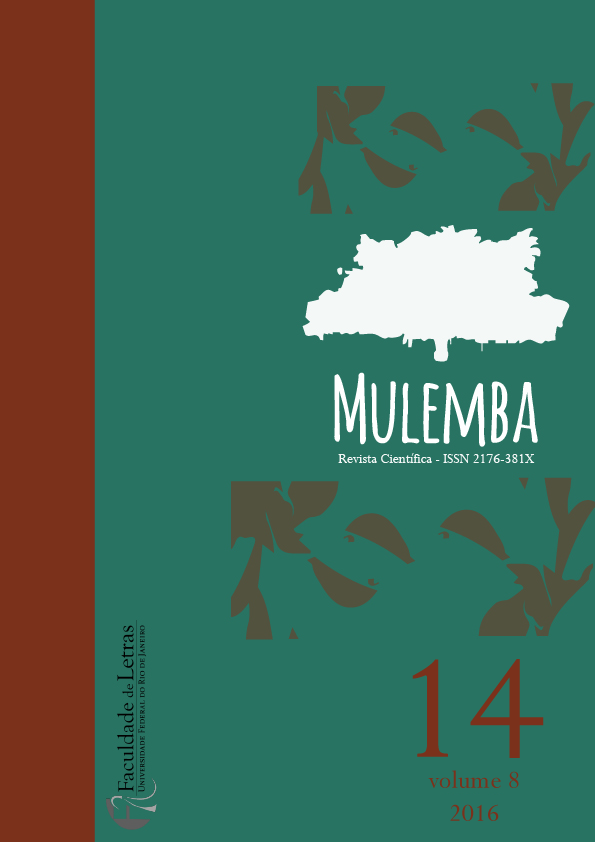Creole nation and creole narrative: discourse merges in the construction of a complex portrait of slavery
DOI:
https://doi.org/10.35520/mulemba.2016.v8n14a4322Keywords:
Nação crioula, intertextuality, history, creolisationAbstract
We analyzed in the novel Nação crioula: a correspondência secreta de Fradique Mendes (2011), by José Eduardo Agualusa, the relation between historical and fictional discourses highlighting how the novel dialogues intertextually with Eça de Queirós's creation through the protagonist figure and how it recalls the slave trade practiced by the triad Portugal, Africa and Brazil. The combination of these discourses results in a kind of text that we define as “creole”, according to the definition of the theorist Édouard Glissant.
Downloads
Published
2016-06-28
Issue
Section
Articles
License
Authors who publish with this journal agree to the following terms:
- Authors retain copyright and grant the journal right of first publication with the work simultaneously licensed under a Creative Commons Attribution License that allows others to share the work with an acknowledgement of the work's authorship and initial publication in this journal.
- Authors are able to enter into separate, additional contractual arrangements for the non-exclusive distribution of the journal's published version of the work (e.g., post it to an institutional repository or publish it in a book), with an acknowledgement of its initial publication in this journal.
- Authors are permitted and encouraged to post their work online (e.g., in institutional repositories or on their website) prior to and during the submission process, as it can lead to productive exchanges, as well as earlier and greater citation of published work (See The Effect of Open Access).

